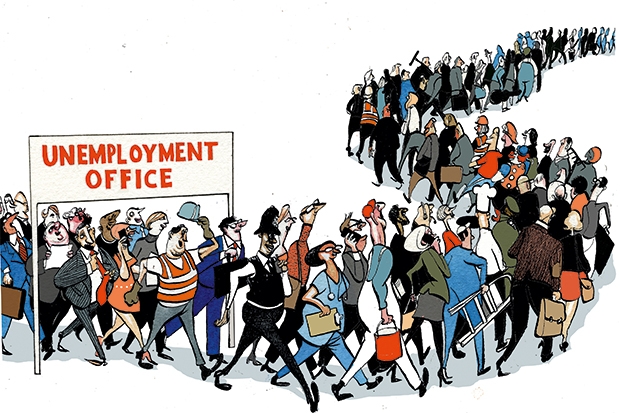For the first time ever, the number of UK job vacancies – now almost 1.3 million – has overtaken the unemployment count. Normally, this would lead to people in work feeling much better off, and lead to pay hikes and bonuses as employers compete to recruit and retain employees. But in fact, regular pay in real terms (that is, after inflation and before bonuses) is down 1.2 per cent – fuelling the cost-of-living crisis that is now the central fact of British politics. What’s going on?
In short, today’s ONS labour market overview is yet another example of how inflation can ruin otherwise good news. Total salaries are up 7 per cent and unemployment fell to 3.7 per cent in Q1 (a record low not seen since the mid 1970s). This is yet another vindication of the furlough scheme, and marks another month in which the dreaded ‘stagflation’ has been kept at bay (rising unemployment is the final ingredient of ‘stagflation’, on top of lacklustre growth and high inflation – both of which the UK is already experiencing).
Yet people are still feeling poorer, as even substantial wage increases aren’t covering the cost of rising bills.

Get Britain's best politics newsletters
Register to get The Spectator's insight and opinion straight to your inbox. You can then read two free articles each week.
Already a subscriber? Log in








Comments
Join the debate for just $5 for 3 months
Be part of the conversation with other Spectator readers by getting your first three months for $5.
UNLOCK ACCESS Just $5 for 3 monthsAlready a subscriber? Log in